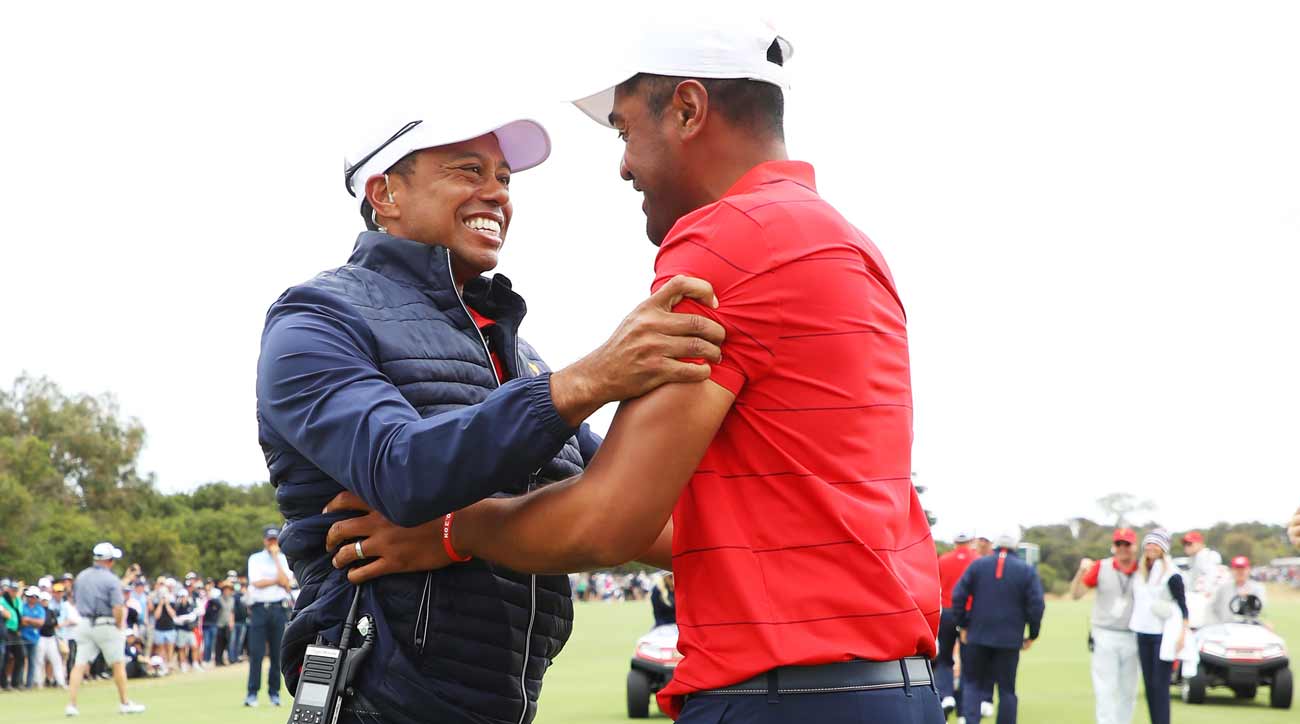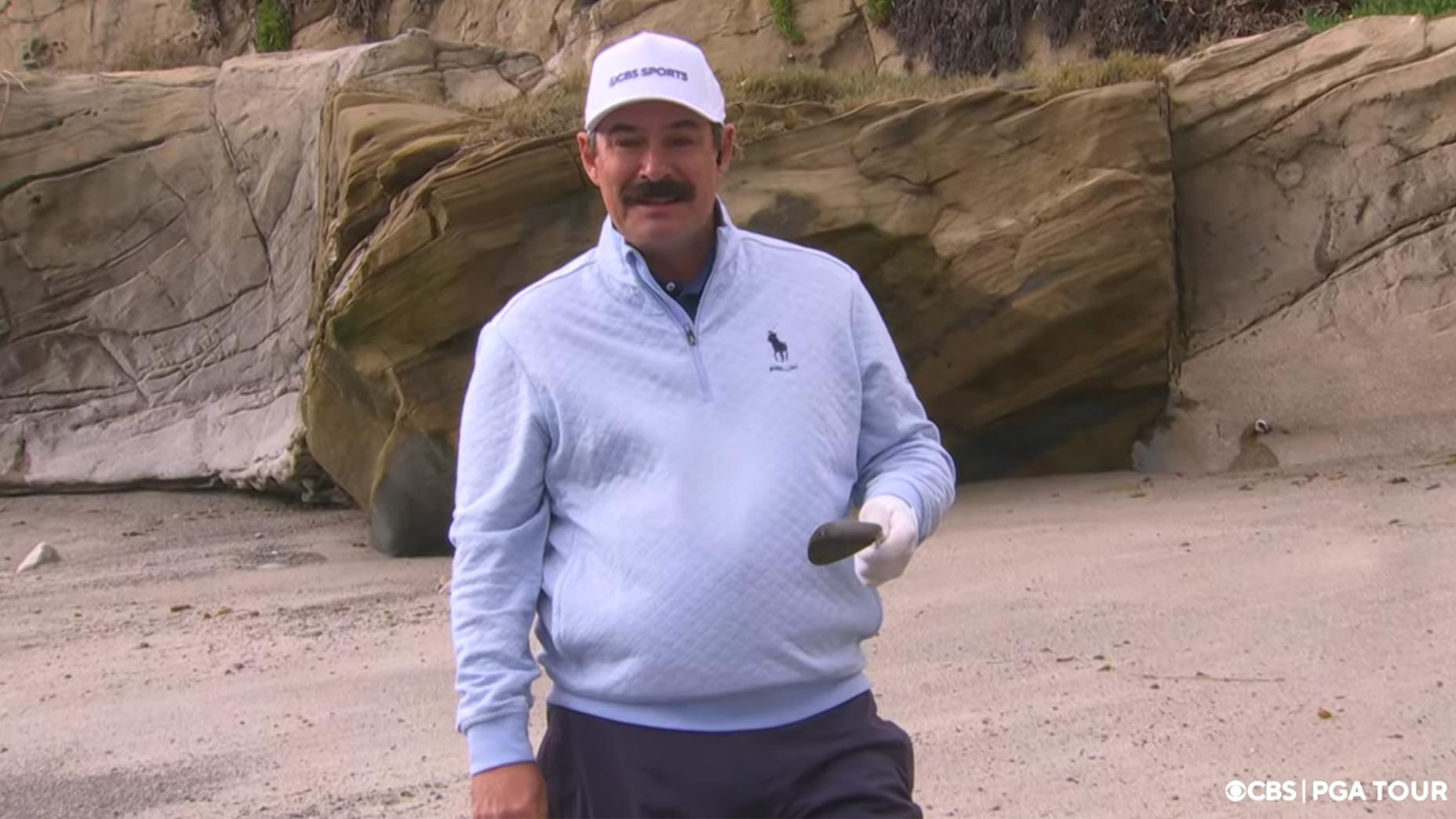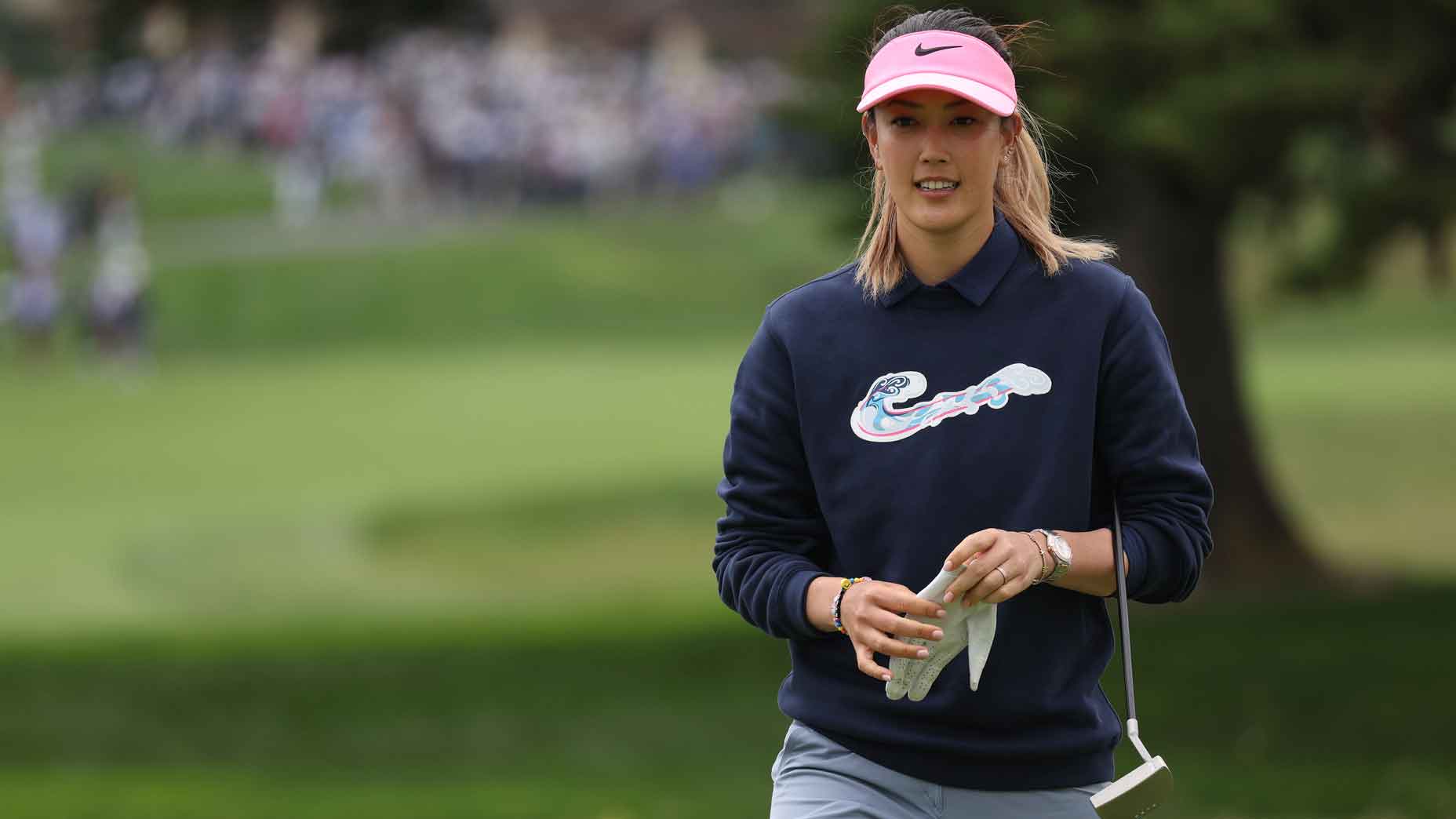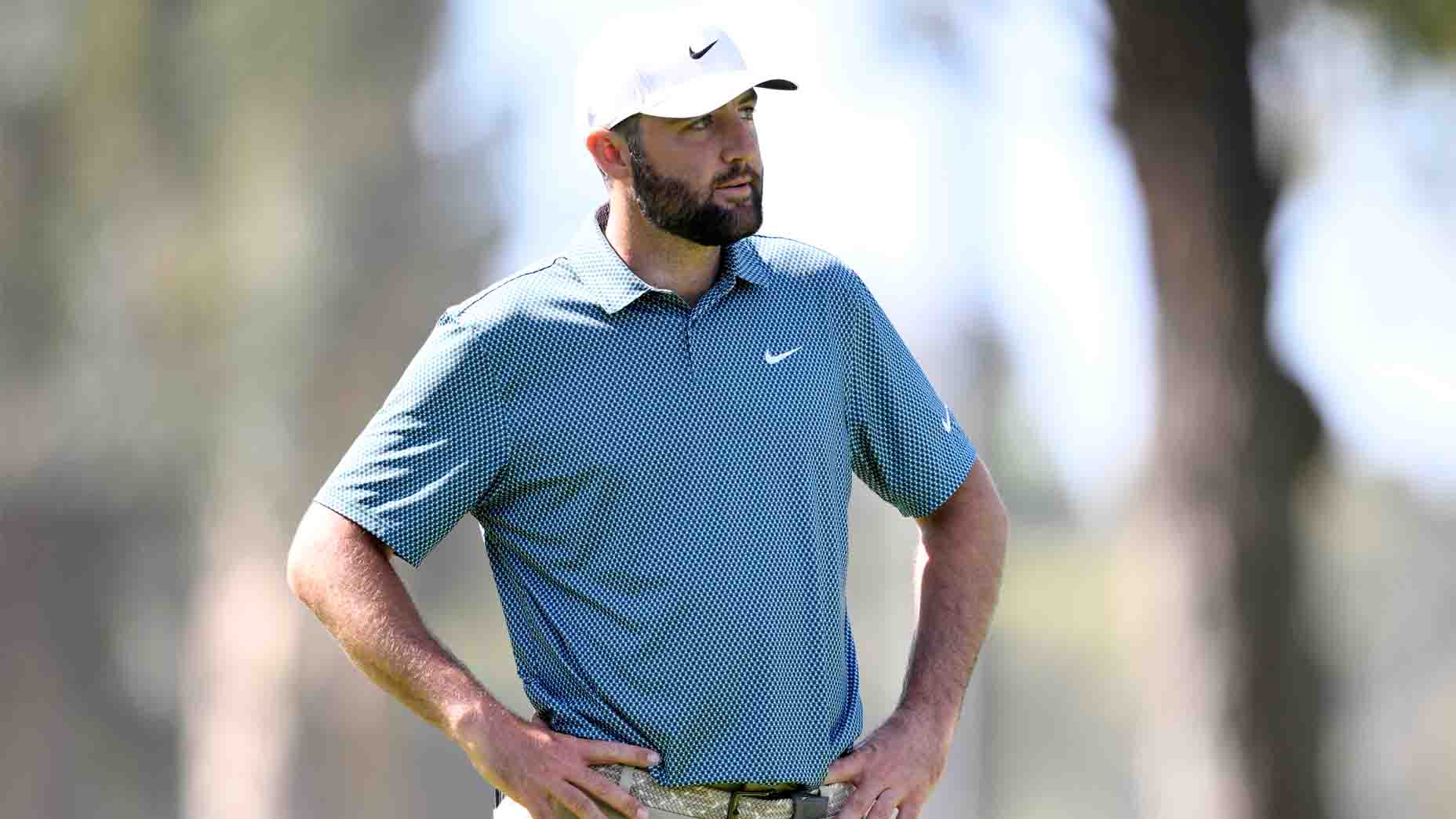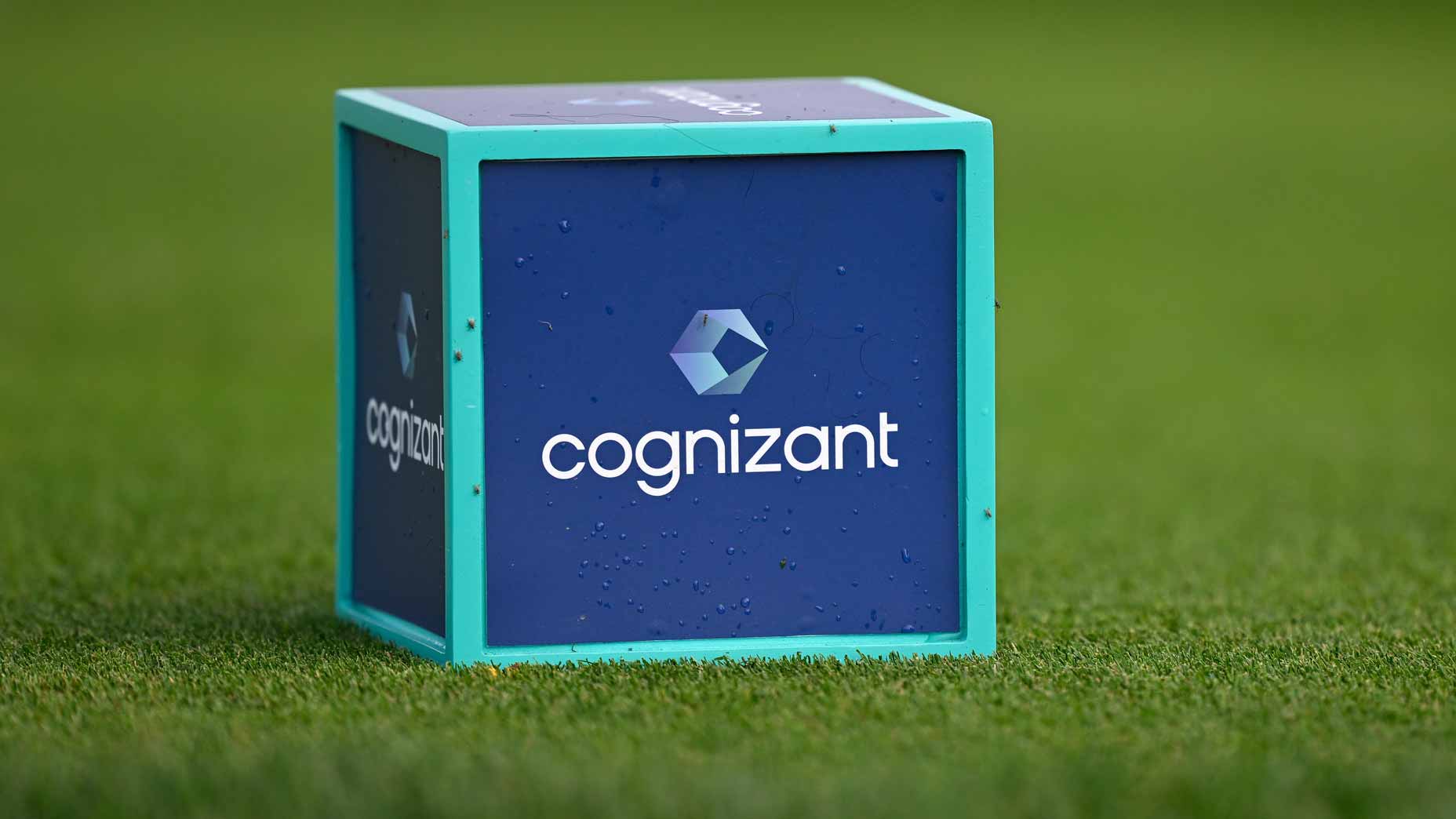 2026 Cognizant Classic: TV schedule, streaming info, how to watch, tee times
2026 Cognizant Classic: TV schedule, streaming info, how to watch, tee times
Tour Confidential: Is Patrick Reed permanently on the captain’s pick blacklist?
Check in every week for the unfiltered opinions of our writers and editors as they break down the hottest topics in the sport, and join the conversation by tweeting us @golf_com. This week we discuss the Americans’ Presidents Cup victory, including the impact of captain Tiger Woods, the potential fallout for Patrick Reed, decision captains would like to have back and more.
1. Thanks to a well-documented rules infraction at the Hero World Challenge, Patrick Reed came into the Presidents Cup with controversy already swirling around him — and then things got worse. He made a curious shoveling gesture on the green, went 0-3 teamed with Webb Simpson and even had to use a backup caddie on Sunday (his only win) after his regular looper, brother-in-law Kessler Karain, was banned due to an altercation with a fan. After creating drama for the second straight team event, is Reed now permanently on the captain’s pick blacklist?
Michael Bamberger, senior writer: No, but he would have to reconstitute his life.
Josh Sens, senior writer (@JoshSens): Never say never. But Reed is sure making a strong case against himself. Maybe even more telling than his sand-shoveling at the Hero was his lack of contrition afterwards. He could have said, “I lost it for a minute there. I’m not sure what I was thinking but I messed up badly and I’m very sorry.” There was none of that. Just tedious defiance and victimhood. But the fact that I wouldn’t pick him doesn’t mean that an actual captain won’t.
Dylan Dethier, senior writer (@dylan_dethier): A year ago, my colleague Josh Sens wrote the following sentence after the Ryder Cup: “In the longer term, Captain America likely won’t top the list of America captain’s picks, should he ever need one.” Remember that? But Reed got hot at the right time and captain Woods gets along well with him and there he was on the list of picks. Never say never is right. In my mind, the more interesting question is whether the continuing backlash will have long-term effects on Reed’s play. As good as Reed has been historically at channeling fire into strong performances, taking grief from the fans ALL the time has to wear on you.
John Wood, PGA Tour caddie for Matt Kuchar (@Johnwould): No. Captains all have different reasons for their picks, and you never know what a future captain might want to fill out his team. Youth and passion? Experience and calmness? Camaraderie and a good fit? Of course you want someone in good form and playing well, but you have to factor in intangibles when it comes to captain’s picks. That’s why they exist in the first place, otherwise you’d just go 1-12 on points. Patrick has a passion for these events and sometimes maybe it can overwhelm a bit in ways he may not even be conscious of. I think as he grows and matures he’ll understand how to keep the passion and lose the controversy.
Luke Kerr-Dineen, instruction editor (@LukeKerrDineen): Yes, absolutely. This guy shouldn’t be anywhere near any U.S. team until there are some serious changes. His scorched-earth policy on whatever team chemistry he came across used to be worth it, but now he isn’t even winning anymore, and his baggage has only gotten worse. He’s become an embarrassment to the U.S. team, and fans — and his peers — deserve far better.
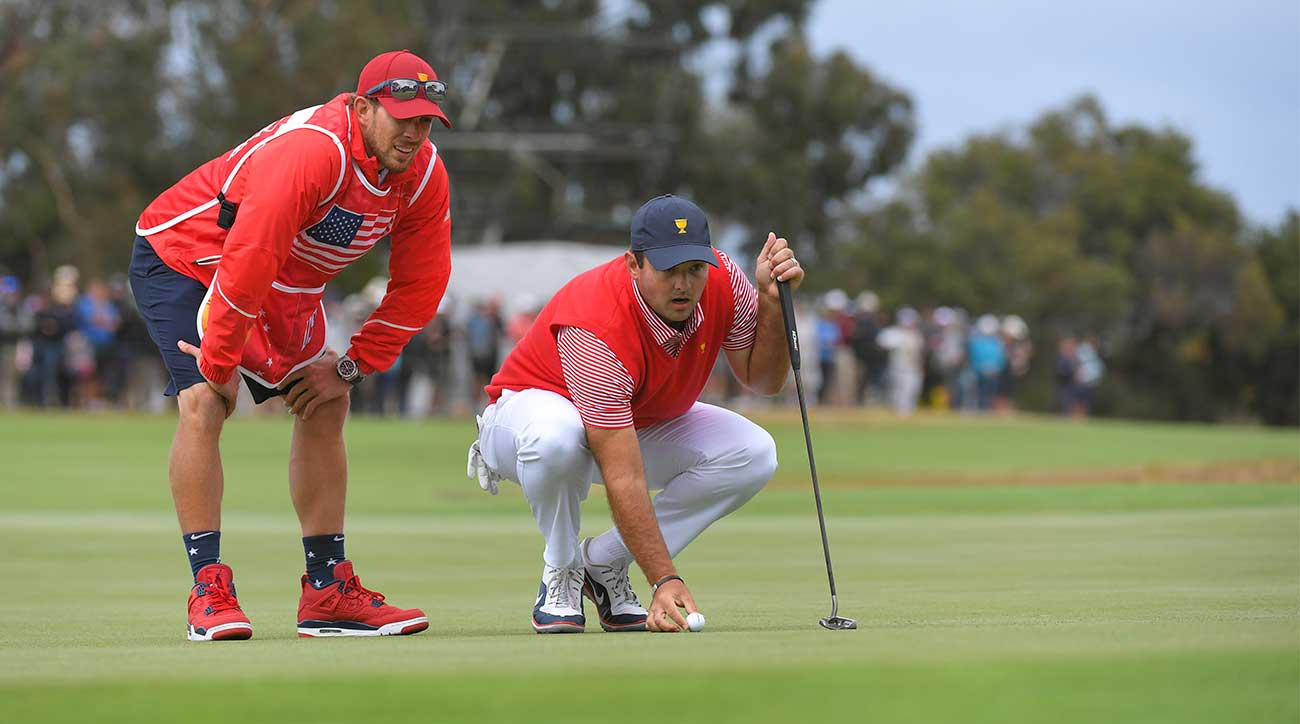
2. Reed’s caddie, Kessler Karain, was banned for Sunday singles after an altercation with a fan on Saturday. In a statement, Karain said a caddie’s job is to protect your player, but he said he’d “had enough” when he jumped out of his cart and pushed a fan whom he says yelled an expletive at Reed. “I don’t think there’s one caddie I know that could blame me,” he said. Do you think Karain’s actions warrant a suspension from the Tour?
Bamberger: Absolutely, because the next incident could be worse. I think you learn in kindergarten to keep your hands to yourself.
Sens: Agreed. Having “had enough” is not a good excuse. It’s juvenile. Put him in timeout for a bit with the other misbehaving kids.
Dethier: Caddies and players are exposed out there, and I appreciate the difficulty of facing down a hostile crowd. I can actually think of a ton of situations where a caddie shoving a fan would be warranted. But Karain’s strange non-apology basically boiled down to, “I got frustrated and fed up, so I shoved this guy.” No bueno. Hopefully the Tour will get the full story (we really don’t know much for sure, thus far), but based on his own story he should sit out a couple of events.
Wood: There is a lot more to the story, and the Tour will decipher everything that occurred. Nobody feels worse about this than Kessler, I promise you that. He’s a good man and a good caddie, and he made a mistake and knows it. I’ve said it in the past regarding Presidents Cups and Ryder Cups, that there are a certain number of fans on both sides who go way over the line. Banter and cheering bad shots and partisanship is great and should happen when you play an away game, but nobody should have to endure personal insults, which happens at every Cup — in the United States, in Australia, in Europe. It’s getting tougher and tougher out here to ignore. I burn for these events and try to keep an even keel out there, but there were more than a few times this week I felt like responding to hurled insults. As caddies, we instinctively want to protect our players, and we want to defend ourselves. Now, Kessler knows you can’t go over the line and be physical. But after being called expletives and being told you suck and much worse all week (that was my experience, I can only imagine what Kessler had to hear) at some point you respond. That’s being human. It’s not being a bad caddie or a bad person. I’m not defending his actions and saying what he did was right, but I certainly understand it. Just put yourself in his place. You’re at work, doing your job the best you can, and all day people are hurling insults and cursing at you and calling you awful names, and maybe your wife is out watching, or worse, your kids are there watching and hearing all this. It becomes pretty difficult to ignore and turn the other cheek. And again, I’m not blaming this on just the Australian fans. Most of them are awesome and give a good bit of banter, just as most European and American fans do. But there are always a handful who want to be part of the show. They want to be clever and throw out all their faceless false bravado knowing you can’t respond. Frankly it’s embarrassing. And unoriginal. When someone yells something that’s funny or unique, even if it is an insult, we kind of laugh at it. But the same thing yelled over and over and over is boring and it gets under your skin. I’m not saying what he did was right, I’m just saying I understand.
Kerr-Dineen: Without doubt. Suspension may even be too lenient. I wouldn’t blame the Tour if they threw him out entirely. What are we doing here if we’re taking incidents like this — against fans, no less — lightly. This was a mess of Reed’s own making, and further evidence that he shouldn’t be anywhere near this team for the foreseeable future.
3. There was plenty of chatter focused on the Spieth-Reed Ryder Cup split last year (mainly due to Reed bringing it up in the aftermath), but Reed is now 8-1-3 in Ryder Cups/Presidents Cups when paired with Spieth and 0-7-0 with anyone else. Are we underestimating how important Spieth was to that partnership?
Bamberger: Yes, and we are underestimating Spieth’s broad contributions to golf at his young age. He would have been my second pick, after Tiger. He didn’t make the top five. Crazy.
Sens: I don’t think it was crazy not to pick Spieth, who has been struggling. But it would be crazy to think that he didn’t have a lot to do with Reed’s success — thanks both to his play at the time and to his personality.
Bamberger: I agree, Josh. Crazy is an overstatement. I was wrong. I apologize. I made a mistake. I would take it back if I could. I accept my penalty. I was just pretending the team with Reed off and Spieth on.
Sens: Apology accepted. But I’m still not making you a captain’s pick.
Dethier: Numbers like that defy logic, and it is a large enough sample size that there’s something there. I think it’s a reminder that team golf is an extremely human experience. Spieth was incredible, to be sure, but he brought something out in his partner’s play that Tiger Woods (last year) and Webb Simpson (this year) did not.
Wood: Partnerships and match-play records, they can be deceiving as hell. Does a partnership that shoots 77 and wins because their opponents shoot 80 deserve more credit than a team that shoots 68 and loses because their opponents shoot 66? Those numbers honestly don’t tell me a whole bunch. In speaking with those who watched those matches, I think for the most part Webb and Patrick played fairly well, they were just beaten by guys who played better. So unless you can dive deeper and tell me that Patrick and Jordan played great in every match because they shot this and Patrick and Webb played horribly because they shot that, you just can’t make it that simple.
Kerr-Dineen: I understand why we could come to that conclusion, but honestly, I think it’s less about a so-called partnership, and more a reflection of Spieth’s ability. Spieth, even when he’s struggling, is a superb talent, able to steamroll anybody put in front of him. He doesn’t need Reed to put points on the board. The same, unfortunately, can’t be said for Reed.
ADVERTISEMENT
4. Tiger Woods not only finished 3-0 as a player, but he was the winning captain. What’s your review of Tiger’s debut calling the shots? And what do you think the future holds for him as a player and/or captain in Presidents Cups and Ryder Cups?
Bamberger: Spectacular. A leader of men. One more PC. Two RCs. Two Walker Cups. Then a tour-of-duty in a deputy role to each of these teams, to train the next generation. Your Webb Simpsons, your Dustin Johnsons, your Joe LaCavas. Joe would do a good job. He’d be a good captain.
Sens: Agreed. Couples was Presidents Cup captain multiple times. Tiger seems destined for the same. He clearly relished the role, and he filled it perfectly. It’s funny how we used to think of Tiger’s performance and personality as a kind of zero-sum game, that to be a cold-eyed killer, he couldn’t be approachable. This past week in Melbourne, he was both.
Dethier: Reviewing captaincies always strikes me as a ridiculous exercise because it’s always such revisionist history. For instance, I thought Tiger needed to find a way to play himself on Saturday and I thought it was a huge miss for him to sit. But when his team won two matches and tied two others in the afternoon session, he looked like a genius. It’s a results-based game, which means he deserves plenty of credit for leading the U.S. comeback. But I was struck by just how invested Woods was. The relief on his face when his team sealed it said everything. He also led by example about as well as one could, particularly from the leadoff spot on Sunday.
Wood: All I can say is he was everything you wanted in a captain. He was calm and passionate, he treated everyone like they mattered, he held everyone’s opinion as important, and he was decisive and non-reactionary. Late Friday, it honestly looked like we could be down 9-1. We managed a late rally to keep them within reach but still hadn’t played well as a team. Tiger did not panic, he didn’t change strategies and put together new pairings or toss the game plan out the window. He stuck with his guys. His captaincy reminded me of how he plays. He knows at a U.S. Open you don’t have to go out and shoot 65 the first round. It’s a marathon. It’s four days. You make your decision and plan your strategies long before you step on the grounds and emotions become involved. You know this is how we should run this team or play this tournament, and you stick to the plan until things get desperate. They never got there, and his confidence and calm helped everyone relax. “Well, the captain doesn’t seem to be worrying or straying from his course, so we must be OK.” On teams I’ve been on that haven’t been successful, when the captain starts going rogue and throwing up new strategies on the fly, it trickles down to the players, and the anxiety increases.
Kerr-Dineen: Tiger didn’t blow anybody away tactically throughout the contest. His decisions at points were highly questionable. He handled the Reed drama well, it must be said, but ultimately, Tiger’s stature alone was enough to make players put it all on the line for him. Getting results from players; one way or another, that’s what good captains do.
5. Which statement do you agree with more: The International squad is a strong group of up-and-comers that will make the Presidents Cup competitive for years to come, or that they got lucky to keep it close with a U.S. team dealing with team drama (Reed) and missing key members (Brooks Koepka and Jordan Spieth)?
Bamberger: Unfortunately, the latter. Quail Hollow Club, here they come. Ernie tried so hard. They all did. Twelve is by two too many. Thirty points, 10 players and maybe the Internationals could compete when the Americans are far from home. In the U.S., it will always be hard for the Internationals to win.
Sens: It was a gutty effort but the lopsided historical record is no fluke. The Internationals have some fine young players, but the U.S. has an even larger arsenal of young guns. As Michael alludes to, Royal Melbourne was a great equalizer this week. Put this same competition on a lush dartboard of a modern course, and the competition wouldn’t have been as close. Or as entertaining.
Dethier: At one point on Friday, the International side was projected to take a 9-1 lead through two sessions. In some ways, that’s what made this a particularly gutting defeat: if they couldn’t win this one, when will they be able to?
Wood: People are placing way too much weight on what happened at Liberty National. This Cup was in doubt until the last half hour, and 2015 in Korea was in doubt until the last minute. The American team has a lot of confidence and is experienced winners. Should the Internationals win one, things will change and the records could start evening out. Yes, America has won a bunch in a row, but they haven’t all been blowouts, and the International team will gain a lot of belief from this, even if the outcome didn’t go their way.
Kerr-Dineen: The top of the order on the International team is usually quite strong — certainly strong enough to compare with victorious European teams from recent history. But the talent starts to run thin fast toward the bottom of the order, and with no true connective tissue that bonds players from far-flung corners of the globe, the story was ultimately the same. A series of strange events kept the contest closer than usual, but I’m not sure we can draw any bigger conclusions than that.
6. Which one decision do you think each captain would like to have back?
Bamberger: Picking Reed, for Tiger. Not importing rough, for Ernie.
Sens: Reed for Tiger. For Ernie? I’m not sure it would have made much of a difference, but sitting Haotong Li for the first two days couldn’t have done much for his confidence. By the time he got on the course on the third day, he looked entirely out of sorts. But maybe he would have anyway. I’m reaching here. Given the team he was up against, second-guessing Els feels like nitpicking a captain who pretty much made all the right moves.
Dethier: For Tiger, sending Simpson and Reed out for a third match certainly didn’t pan out. As for Els, it’s hard for me to imagine him doing a much better job short of injuring Woods during one of their media appearances, though I like the two suggestions above.
Wood: It’s a rare result when I’m not sure either captain would change any of their decisions. I don’t mean to sound pollyannaish, but I thought both captains did a hell of a job. I commend Ernie so much for willing to make big changes to the way the International team did things. All the way from a new logo to using statistics more to telling players who they were playing with rather than making them feel good letting them play with who they wanted to play with, he was an awesome captain. He looked at how things have gone and took some risks, used new strategies, and like he said gave the U.S. team a hell of a fight.
Kerr-Dineen: Having to deal with the Reed nonsense all week. Ernie shouldn’t look back with any regrets. He captained this team superbly.
7. Did this week change the public’s perception of the Presidents Cup? And if so, who do we thank for it?
Bamberger: In the short term, yes. In the long term no. But for the short term, it did and that’s because of Tiger, Royal Melbourne, Abe Ancer, Ernie, Brandel’s Saturday-night commentary. Mssrs. Im, Pan and An. Great talents, bright futures, nice manners.
Sens: It was a great Cup, but if anything, it stands to only harden the public perception that the Internationals don’t stand much of a chance. As for the factors, the energy this year was fueled, among other things, by Tiger as player/captain in peak form; Reed as buzz-generating villain; the performance of some compelling young International players, and, of course, Royal Melbourne itself. It’s golf writer cliche to say that the course was the star, but in this case, it’s true. How about we scrap Quail Hollow and keep it at Royal Melbourne for 2021?
Dethier: I think this was an awesome week for the Presidents Cup; fun Down Under, primetime TV, great course, interesting cast of characters and a nail-biting result. All those things could happen in the future, too, and golf fans will continue to enjoy it. The Cup’s biggest problem with a broader audience is still a basic one: it’s a confusing event to wrap your head around. The U.S. versus the rest of the world — minus Europe? But still I loved this edition.
Wood: Too early to tell, but it certainly felt different to us. It was a hell of a tournament. I wish there were more courses we played tournaments on like Royal Melbourne. It’s truly one of the best. It’s like playing an Open Championship and the Masters at once. There were so many options, so many different ways to play holes, so much strategy and planning into every shot that anyone could play well there. At many courses and tournaments, the No. 1 defense of a course is length, and in today’s modern game, distance isn’t a defense at all. It just isn’t. Wind, fast fairways and firm greens are everything, and it shows you don’t need an 8,000-yard course to challenge the best players in the world. Royal Melbourne won the week.
Kerr-Dineen: I think it did, actually. It showed what potential this contest has when one of the teams is actually capable of beating the other. Let’s hope it continues into the future.
To receive GOLF’s all-new newsletters, subscribe for free here.
ADVERTISEMENT

